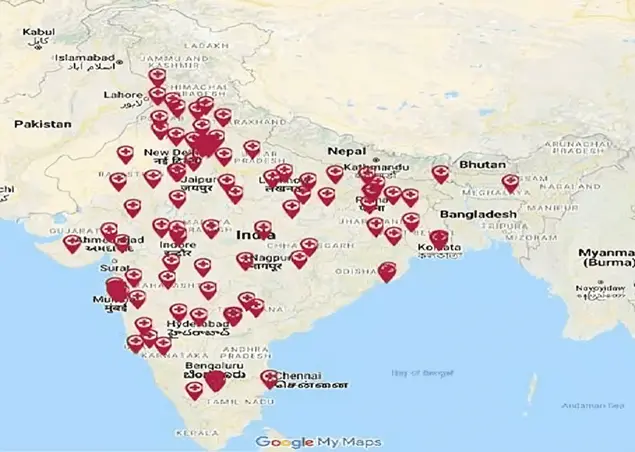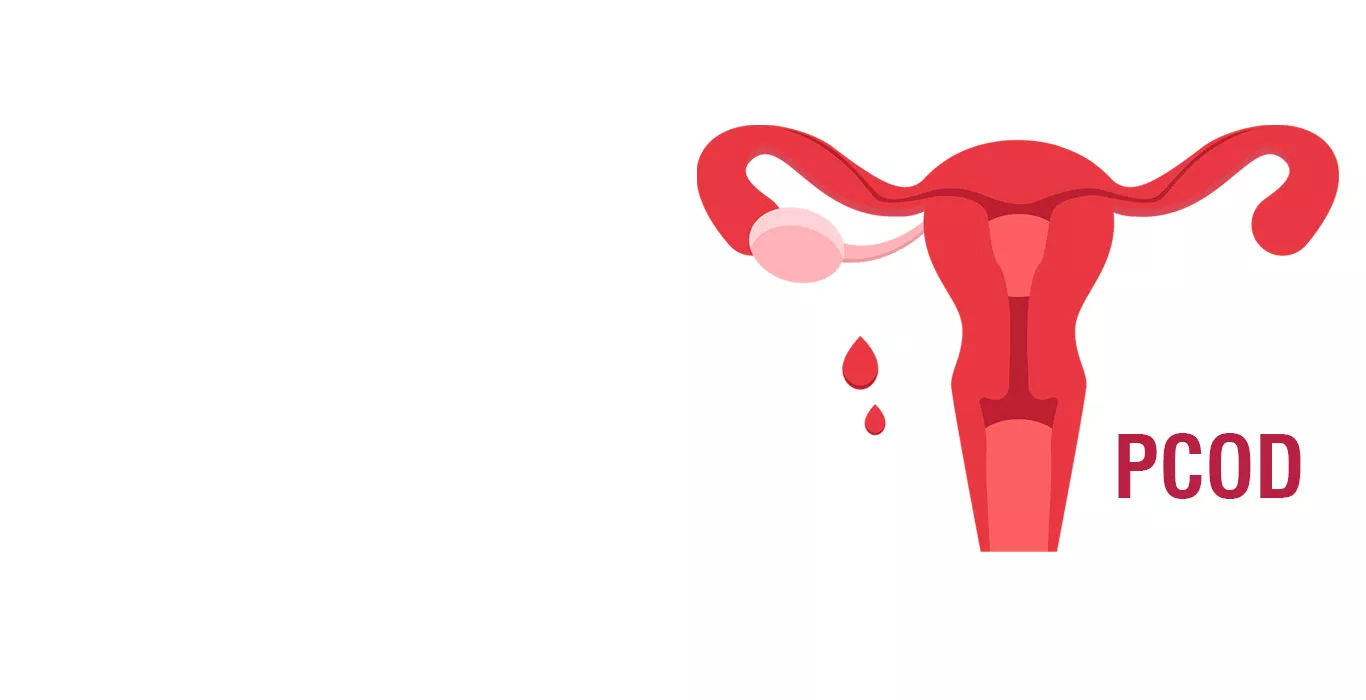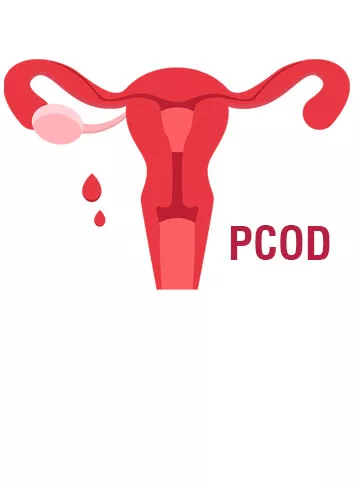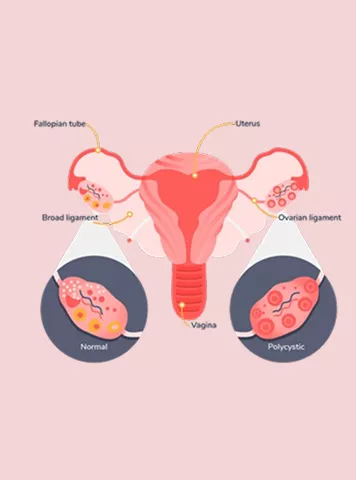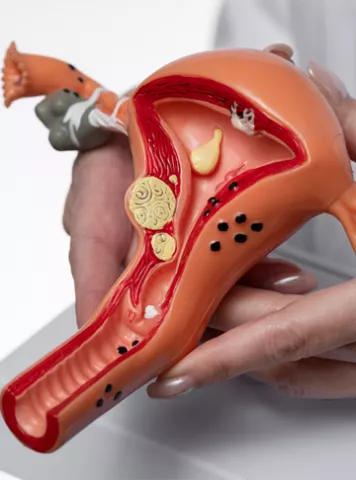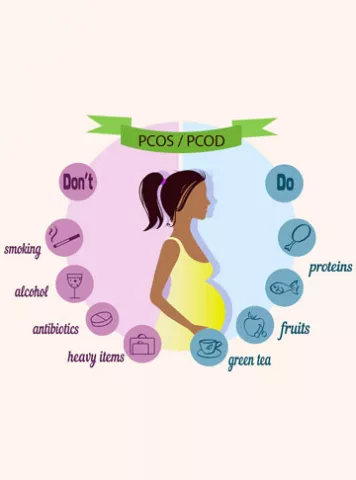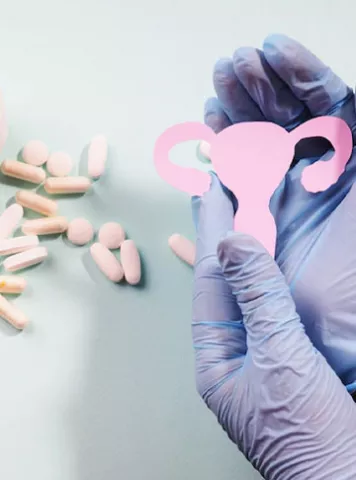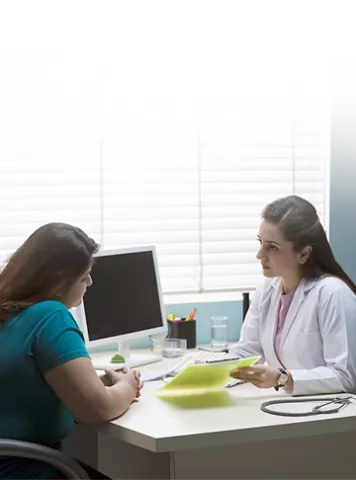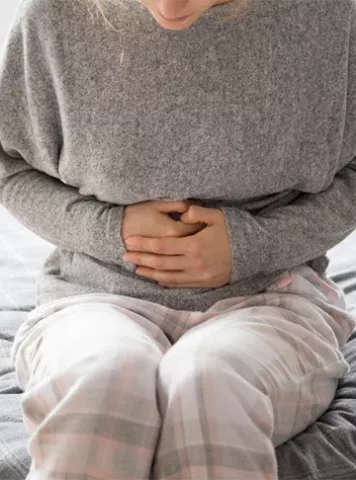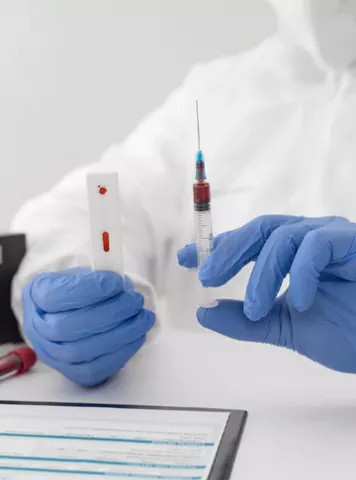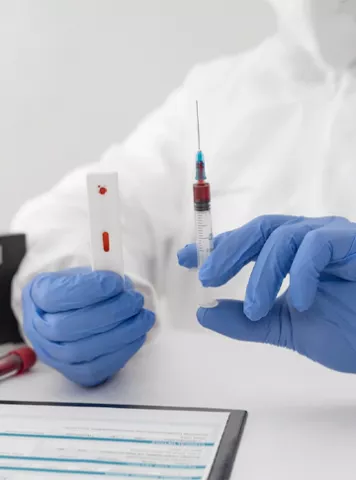Millions of women globally live with Polycystic Ovarian Disease (PCOD), a hormonal condition that is steadily on the rise. PCOD typically involves follicles that remain immature, disturbing ovulation and giving rise to missed periods, infertility, and metabolic-related health issues. While not life-threatening, PCOD is strongly linked to infertility issues in women. Early awareness of how it is identified can help in better health outcomes.
What is PCOD?
Polycystic Ovarian Disease or PCOD is a hormonal condition characterised by ovaries producing immature eggs in large quantities. The eggs remain undeveloped within the ovaries, appearing as multiple cysts. This enlarges the ovaries and triggers hormonal imbalances, which often present as acne, excess hair on the face, and irregular cycles.
Along with these hormonal disturbances, PCOD may also increase the chances of:
- Developing diabetes
- Experiencing fertility issues
- Persistent acne breakouts
- Excessive or unusual hair growth
Although considered less critical than Polycystic Ovary Syndrome (PCOS), PCOD still demands medical attention to reduce the risk of long-term reproductive and metabolic complications.
What are the Symptoms of PCOD?
Some of the common signs of PCOD include a range of physical and hormonal changes, which can affect overall health and reproductive well-being, such as:
- Irregular or absent menstrual cycles
- Oily skin and recurring pimples
- Thick hair growth on the face, chest, or back
- Gradual thinning of scalp hair
- Sudden weight gain or resistance to weight loss
- Cramping or pelvic discomfort
- Feeling fatigued most of the time
- Infertility or difficulty conceiving
What is the Cause of PCOD?
While there is no single cause of PCOD, several factors are known to contribute to the condition. The following are recognised as common contributors to PCOD:
- Hormonal irregularities (elevated LH and androgen levels)
- Ovarian overproduction of male hormones
- Insulin resistance leading to excess insulin
- Hereditary tendency
- Lifestyle influences, including stress and a poor diet
What are Risks and Complications Associated with PCOD?
Untreated PCOD may lead to a range of long-term health risks and complications. Some of the most common issues it can trigger include:
- Fertility challenges caused by disrupted ovulation
- Type 2 diabetes from insulin resistance
- Weight gain and obesity-related complications
- Risk of endometrial cancer from endometrial hyperplasia
- Abnormal bleeding and menstrual disorders
- Cardiovascular risks like high blood pressure and heart disease
- Persistent acne and hirsutism from a hormone imbalance
How is PCOD Diagnosed?
Among women of reproductive age, Polycystic Ovarian Disease (PCOD) is one of the most common hormonal disturbances. It manifests through irregular ovulation, high androgen levels, and the presence of several small immature ovarian follicles. Because these features often overlap with thyroid issues or menstrual disorders, accurate diagnosis becomes vital.
Unlike PCOS, where the Rotterdam criteria are mandatory, PCOD diagnosis is done mainly by observing ovarian changes and symptoms. Indira IVF ensures reliable results via thorough clinical examination, hormonal profiling, and ultrasound scans. Here is what it entails:
Clinical Assessment
A consultation with a top gynaecologist is the first and most important step in diagnosing PCOD.
Evaluation of Menstrual Cycle Irregularities
The concerned fertility doctor focuses on menstrual patterns, as women may experience varying symptoms. Typical irregularities may include:
- Oligomenorrhea : cycles delayed beyond 35 days
- Amenorrhea : missing periods for several months
- Menorrhagia : heavy or erratic menstrual bleeding
Observation of Acne, Hirsutism, and Hair Thinning
Three visible symptoms often linked with PCOD are:
- Persistent acne breakouts.
- Coarse hair growth in areas unusual for women.
- Thinning hair at the scalp’s crown.
Such observations are essential for early intervention.
Types of Blood Tests in PCOD Diagnosis
Laboratory testing represents the second essential step in diagnosing PCOD. Indira IVF offers a full hormonal and metabolic evaluation to provide a detailed picture of reproductive health.
LH, FSH, and Testosterone Levels
- Luteinising Hormone (LH) and Follicle-Stimulating Hormone (FSH) : In many women with PCOD, LH levels are higher than FSH, disrupting the normal growth of ovarian follicles and causing multiple immature eggs to remain in the ovaries.
- High Testosterone : Raised androgen levels are a typical feature of PCOD, causing skin issues like acne, unwanted hair growth, and thinning of scalp hair.
Hormonal evaluation confirms the endocrine abnormalities associated with PCOD.
Insulin and Glucose Levels
PCOD is commonly linked to insulin resistance, but not all women are affected. Measuring fasting glucose, fasting insulin, and conducting an OGTT helps determine how well the body processes sugar. Impaired glucose tolerance in PCOD patients can lead to increased susceptibility to type 2 diabetes and metabolic complications.
Anti-Müllerian Hormone (AMH)
Anti-Müllerian Hormone (AMH) comes from ovarian follicles and is usually higher in women with PCOD. Elevated AMH indicates a higher number of immature follicles, often corresponding with ultrasound findings. While it is a valuable marker, AMH alone does not diagnose PCOD.
Ultrasound Scan for PCOD
Pelvic ultrasounds, using transvaginal or abdominal approaches, visualise the ovaries and uterus in detail.
Detects Multiple Immature Ovarian Follicles
PCOD is characterised by multiple small, immature follicles on ultrasound, often called a ‘string of pearls’. These follicles disrupt normal ovulation.
Assesses Ovarian Volume and Morphology
Ultrasound assesses ovarian volume and structure. Enlarged ovaries containing more than the normal number of follicles provide tangible evidence for diagnosis.
What is the Most Effective Treatment for PCOD?
PCOD affects a significant number of women during their reproductive years. The condition is characterised by numerous small, undeveloped ovarian follicles, hormonal imbalance, and irregular ovulation, which can lead to symptoms such as irregular menstrual cycles, acne, hair loss, weight gain, and difficulty conceiving.
Effective PCOD treatment is goal-driven, addressing symptoms, hormone imbalances, or fertility concerns. At Indira IVF, specialists formulate personalised strategies that incorporate lifestyle adjustments, medical therapy, and fertility treatments, with continuous monitoring essential for managing this chronic condition.
General Management: Lifestyle Modification
The foundation of PCOD treatment lies in lifestyle management. Even before medical interventions, adopting healthier habits can make a significant difference in controlling symptoms.
Diet and Nutrition
A well-designed diet is vital for controlling PCOD, aiding hormone regulation and metabolic wellness.
- Consuming low-glycaemic foods such as whole grains, legumes, and vegetables helps manage blood sugar and prevent insulin spikes.
- Sufficient protein from lean meats, dairy, and plant-based sources supports muscle and curbs appetite.
- Healthy fats, especially omega-3s from nuts, seeds, and fish, combat inflammation and promote ovulation.
- Steering clear of processed foods and refined sugars is critical, as they worsen insulin resistance.
At Indira IVF, nutritionists craft personalised plans tailored to each patient’s weight and insulin sensitivity so that they can meet their fertility needs.
Weight Control
Research shows that a marginal reduction in body weight can restore ovulation and improve fertility outcomes in PCOD women. Weight management helps:
- Reduce androgen levels
- Restore menstrual regularity
- Improve insulin sensitivity
- Enhance the effectiveness of fertility treatments
Structured weight-loss programmes involving dieticians and fitness coaches often lead to long-term improvements.
Exercise and Physical Activity
For PCOD patients, consistent physical activity is vital.
- Cardio workouts, including cycling, swimming, and walking, enhance cardiovascular health and insulin response.
- Strength training builds lean muscle, increases metabolism, and promotes better hormone regulation.
- Yoga and mindfulness practices reduce stress, which plays a role in worsening hormonal imbalance.
Thus, lifestyle changes are not just the first line of defence but also continue to play a role alongside medical or fertility treatments.
Symptom Relief: Hormonal and Medical Treatment
Women prioritising symptom control may be prescribed medications to manage hormonal imbalance and related issues.
Hormonal Pills
- Oral Contraceptive Pills (OCPs): Commonly used to regulate menstrual cycles, reduce acne, and control excessive hair growth.
- Progesterone therapy: May be prescribed for inducing withdrawal bleeding and protecting the uterus from endometrial thickening due to unopposed oestrogen.
These therapies don’t cure PCOD but provide effective symptom relief and lower long-term health risks.
Insulin-Sensitising Agents
Insulin-sensitising treatments are often prescribed in PCOD due to frequent insulin resistance. They offer:
- Improved blood sugar regulation and insulin sensitivity
- Assistance with weight management in some women
- Support for regular ovulation when paired with healthy lifestyle habits
Other Medications
Depending on individual symptoms:
- Anti-androgens may be prescribed for excessive hair growth.
- Topical and oral medications for acne.
- Hair restoration therapies for androgenic alopecia.
This targeted approach ensures that women struggling with visible and metabolic symptoms of PCOD get long-lasting relief.
Fertility-Focused Treatment
For many women with PCOD, irregular ovulation makes conception difficult. Indira IVF offers a step-wise fertility management plan.
Healthy diet, exercise, and weight management are prioritised, often helping restore ovulation naturally. If lifestyle changes alone are not sufficient, ovulation-inducing medications are prescribed.
Intrauterine Insemination (IUI):
Ovulation induction can be combined with IUI, where sperm is introduced directly into the uterus at ovulation.
In-Vitro Fertilisation (IVF)
For women with PCOD who struggle with infertility despite other treatments, IVF is highly effective. The procedure helps doctors to:
- Stimulate eggs using controlled hormones
- Retrieve mature eggs from the ovaries
- Fertilise eggs in a laboratory
- Transfer the resulting embryo into the uterus
At Indira IVF, advanced protocols are used to minimise risks like Ovarian Hyperstimulation Syndrome (OHSS), which PCOD patients are more vulnerable to. IVF has proven to be a highly effective option for couples struggling with PCOD-induced infertility.
Importance of Long-Term Care and Regular Follow-Ups
As a chronic condition, PCOD requires continual monitoring rather than short-term treatment. Even with symptom control or pregnancy, follow-ups are vital.
- Hormonal balance is maintained through routine clinical monitoring.
- Blood sugar & cholesterol monitoring reduces the risk of diabetes and heart disease.
- Treatments are adjusted as women transition through symptom control, fertility, and post-pregnancy phases.
Continued specialist care helps women protect reproductive health and overall wellness.
How Indira IVF’s PCOD Solutions Can Help?
Known for expertise and personalised attention, Indira IVF offers holistic, goal-oriented treatment for women facing PCOD-related fertility challenges.
Expertise in PCOD Management
A team of gynaecologists, endocrinologists, fertility specialists, and counsellors provides integrated care, ensuring effective symptom management and fertility support.
Tailored Treatments
Each woman experiences PCOD in a unique way. Some may have irregular cycles but normal weight, while others deal with severe insulin resistance. Indira IVF develops individualised protocols considering:
- Hormone levels
- Lifestyle and habits
- Reproductive goals
Fertility Evaluation and Advanced Solutions
Advanced fertility solutions like IVF with personalised stimulation protocols, embryo freezing, and genetic screening ensure safe and effective outcomes.
Patient Success Stories
Indira IVF has helped several couples manage PCOD and get closer to their parenthood goals by combining clinical excellence with compassionate emotional support.
Comprehensive Support System
Medical treatment at Indira IVF is complemented by:
- Lifestyle and nutrition counselling
- Emotional and psychological support
- Continuous follow-up care
This well-rounded model helps women manage PCOD for fertility and long-term wellness.
Frequently Asked Questions (FAQs)
What is the full form of PCOD?
The abbreviation PCOD refers to Polycystic Ovarian Disease.
How Does PCOD Affect Fertility?
PCOD affects fertility because the ovaries fail to release mature eggs, accumulating immature follicles instead. This hormonal disturbance can result in irregular or skipped periods and suboptimal egg quality, limiting natural conception.
What Tests are Carried Out When Diagnosing PCOD?
Diagnosing PCOD requires multiple approaches rather than a single test. These include blood tests, ultrasound scans, symptom review such as menstrual irregularities, acne, hair growth, etc.
Is it True That PCOD Can Be Cured?
PCOD is not curable, but it is very much controllable. Treatment focuses on easing symptoms, improving chances of conception, and preventing long-term complications. PCOD can be controlled through a mix of lifestyle adjustments and medical treatment.
What are The Risk Factors of PCOD?
PCOD risk is influenced by both genetic and lifestyle factors, including family history of PCOD or type 2 diabetes, obesity that leads to a hormonal imbalance, a sedentary lifestyle, long-term stress and diets rich in refined carbs and sugars worsen symptoms.
What Treatment Options are Available for PCOD at Indira IVF?
At Indira IVF, treatment options for PCOD include lifestyle counselling for diet and exercise, hormonal therapy to regulate periods, insulin-sensitising medicines, ovulation induction medications, Intrauterine Insemination (IUI), In-Vitro Fertilisation (IVF), etc.
Do I Need IVF if I Have PCOD?
Women with PCOD can often conceive without IVF. IVF is considered when these options fail, ovulation induction does not produce results, or there are other infertility challenges like male factor infertility or blocked tubes.
How is PCOD Treatment Personalised at Indira IVF?
Indira IVF ensures customised treatment through detailed hormonal and metabolic evaluation, ultrasound-based ovarian assessment, tailored fertility protocols (IUI or IVF) and special stimulation strategies in IVF cycles to prevent Ovarian Hyperstimulation Syndrome (OHSS).
How Long Does it Take to See Results From PCOD Treatment?
Successfully managing PCOD takes time and patience. Typical durations are 3–6 months for lifestyle interventions, 1–3 months for hormonal therapy, and 3–6 cycles for IUI or ovulation induction.
Does Indira IVF Offer Diet and Lifestyle Counselling for PCOD?
Yes. Lifestyle modification is the first step Indira IVF recommends for PCOD management.
Why Should I Choose Indira IVF for PCOD Treatment?
The centre’s multidisciplinary team of fertility doctors, endocrinologists, and gynaecologists uses advanced reproductive technologies to customise PCOD treatments. Patients also receive counselling and lifestyle advice, ensuring holistic support.
Pregnancy Calculator Tools for Confident and Stress-Free Pregnancy Planning
Get quick understanding of your fertility cycle and accordingly make a schedule to track it
Get a free consultation!
